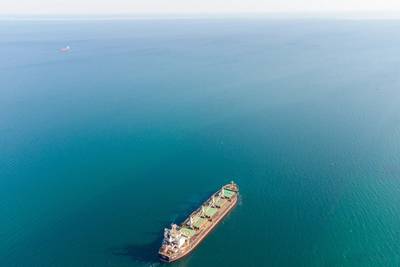Baltic Dry Index Slips to Six-month Low
The Baltic Exchange's main sea freight index dipped to a near six-month trough on Friday and registered its worst week in more than two months, hit by weakness across vessel segments.
The overall index, which factors in rates for capesize, panamax and supramax shipping vessels, fell 43 points to 1,560, its lowest since Feb. 8.
Neils Rasmussen, chief shipping analyst at BIMCO, attributed recent declines to uncertainty around global economic growth and lower iron ore demand in China.
Iron ore futures trended lower this week amid worries about China's ailing property sector, COVID-19 curbs, steel production cuts and tensions over Taiwan.
That in part drove the main sea freight index to a weekly loss of nearly 18%.
The capesize index lost 69 points, or 4.7%, to 1,411 points, its lowest since April 20. It shed nearly a third of its value this week.
Average daily earnings for capesizes, which transport 150,000-tonne cargoes such as iron ore and coal, fell $571 on the day to $11,700.
The panamax index lost 16 points, or 0.8%, to 1,967 points, its lowest since July 19. It lost 4.1% this week.
Average earnings for panamaxes, which usually carry coal or grain cargoes of about 60,000 to 70,000 tonnes, decreased by $150 to $17,699.
BIMCO's Rasmussen also pointed to risks around a deal to unblock Ukraine's grain exports from the Black Sea.
He said, "This corridor has been established to allow exports of Ukrainian grain ... but the agreement so far is only for 120 days so who knows whether it's going to be extended?"
The deal, which allows for Ukrainian grain to be shipped to world markets via Turkey, must be renewed every 120 days.
The implementation of an EU ban on Russian coal could also prompt the bloc to look elsewhere for imports, Rasmussen added.
The supramax index fell 47 points to 1,700 points, its lowest since Feb. 7.
(Reuters - Reporting by Kavya Guduru and Deep Vakil; Editing by Shailesh Kuber and Aditya Soni)











